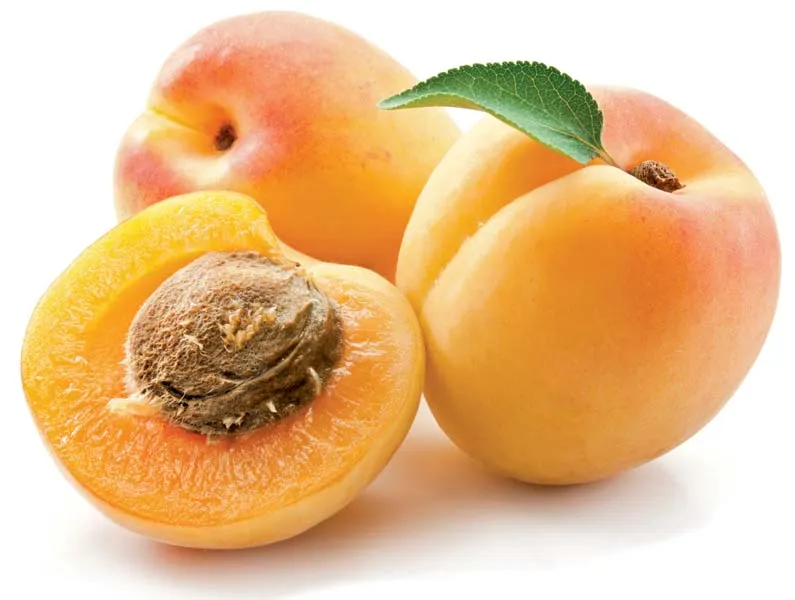Can a Dog Eat Apricots? A Comprehensive Guide for Pet Owners
Apricots and their sweet taste and vibrant color, can be tempting to offer to dogs. However, it’s essential to understand whether this fruit is safe for your pet. In this article, We will examine the potential benefits, risks, and the best practices for Feeding to the dog’s .

Understanding Apricots
They are small, orange fruits that belong to the Prunus family, which includes other stone fruits such as cherries, peaches, and plums. These fruits are not only delicious but also packed with nutrients, making them a popular choice for healthy eating. They are often consumed fresh, dried, or as ingredients in various dishes, including jams, sauces, and desserts.
Nutritional Benefits
Before considering apricots for your dog, let’s look at their nutritional profile:
- Vitamins: Apricots are rich in vitamins A and C. Vitamin A supports eye health and immune function, while vitamin C is an antioxidant that helps combat free radicals and supports overall health.
- Fiber: The fiber content in apricots can aid in digestion, promoting regular bowel movements and contributing to a healthy gut.
- Potassium: This mineral is vital for maintaining heart health and regulating blood pressure.
While these benefits are great for humans, the focus here is on whether dogs can safely enjoy apricots.
Can Dogs Eat Apricots?
The answer is yes, but with caution. While apricots are not toxic to dogs, there are important considerations to keep in mind to ensure your dog’s safety.
1. The Importance of Removing the Pit
One of the most significant risks associated with feeding apricots to dogs is the pit. The pit poses several dangers:
- Choking Hazard: The hard pit can be a choking hazard, particularly for smaller dog breeds. Always ensure that any apricot pieces you give to your dog are free of pits.
- Cyanide Content: Apricot pits contain amygdalin, which can release cyanide when metabolized. Although a dog would need to consume a substantial amount of pits to experience severe toxicity, it’s best to err on the side of caution and avoid giving your dog any part of the pit.
2. Digestive Concerns
If you decide to share apricots with your dog, moderation is key. Too many apricots can lead to digestive upset due to their high fiber and sugar content. Potential issues include:
- Vomiting
- Diarrhea
- Stomach cramps
To minimize the risk of digestive issues, introduce apricots gradually and in small quantities.
3. Allergic Reactions
Although uncommon, some dogs may be allergic to apricots. Signs of an allergic reaction can include:
- Skin irritations or rashes
- Swelling around the face or ears
- Vomiting or diarrhea
If your dog shows any of these symptoms after consuming apricots, contact your veterinarian immediately.
How to Safely Introduce Apricots to Your Dog
If you decide to give apricots to your dog, follow these guidelines to ensure safety:
- Wash Thoroughly: Always wash apricots to remove any pesticides or contaminants from the skin.
- Remove the Pit: Make sure to cut the apricot in half and remove the pit completely before offering any pieces to your dog.
- Start Small: Introduce apricots in small amounts. A couple of small slices can be a good starting point.
- Monitor Reactions: After your dog eats apricots, watch for any signs of digestive upset or allergic reactions.
- Consult Your Vet: If you have concerns about your dog’s diet or the introduction of new foods, consult your veterinarian for personalized advice.
What to Do If Your Dog Eats an Apricot Pit
If your dog accidentally consumes an apricot pit, it’s crucial to take the following steps:
- Stay Calm: While it can be alarming, many dogs can safely pass a pit without any issues.
- Monitor for Symptoms: Keep an eye on your dog for signs of distress, such as choking, lethargy, vomiting, or difficulty breathing.
- Seek Veterinary Advice: If your dog exhibits any concerning symptoms or if you are unsure about the amount consumed, contact your veterinarian for guidance.
Healthier Alternatives to Apricots
If you’re looking for safe, nutritious fruits to share with your dog, consider these alternatives:
1. Blueberries
Blueberries are a fantastic treat for dogs. They are low in calories and high in antioxidants, making them a healthy snack option.
2. Apples
Apples are safe for dogs, provided you remove the seeds and core. They are a good source of vitamins A and C and can help clean your dog’s teeth.
3. Bananas
Bananas are another dog-friendly fruit that many dogs enjoy. They are rich in potassium and can be given in moderation as a tasty treat.
4. Carrots
Carrots are a crunchy, low-calorie option that dogs often love. They are also great for dental health and can help keep your dog’s teeth clean.
5. Watermelon
Seedless watermelon is hydrating and packed with vitamins A and C. Just ensure to remove the seeds and rind before offering it to your dog.
Conclusion: Can a Dog Eat Apricots?
In summary, dogs can eat apricots in moderation, provided certain precautions are taken. Always remove the pit and introduce the fruit slowly to monitor for any adverse reactions. If you’re looking to enhance your dog’s diet with fruits, consider safer alternatives like blueberries, apples, or bananas.
As a pet owner, your dog’s health and well-being should always be your priority. If you’re ever unsure about a specific food item or have concerns regarding your dog’s diet, consulting your veterinarian is the best course of action. With the right knowledge and practices, you can ensure your furry friend enjoys a varied and nutritious diet that supports their overall health and happiness.
